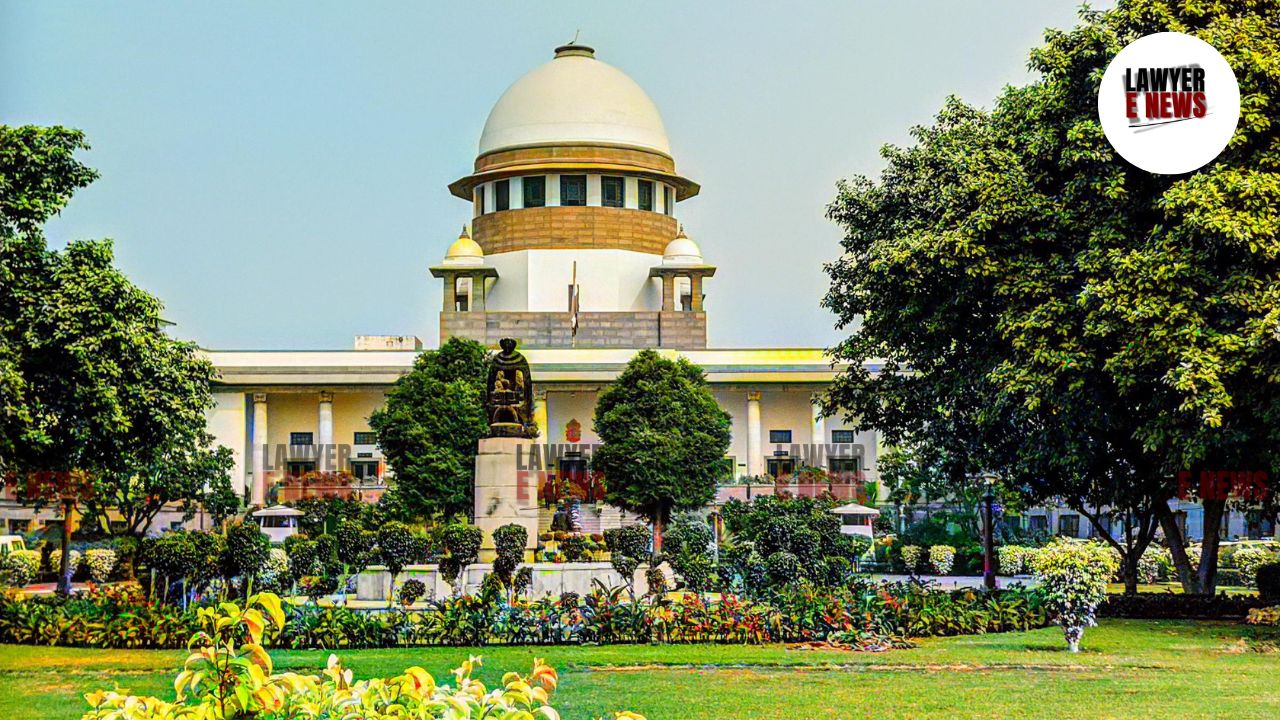-
by Admin
16 February 2026 1:47 PM



Limitation Under Section 34(3) ACA is Three Calendar Months, Not 90 Days: In a notable ruling Supreme Court resolved a crucial issue regarding the computation of limitation for setting aside arbitral awards. The Court held that the provisions of Section 12(1) and Section 4 of the Limitation Act, 1963 are applicable to applications under Section 34(3) of the Arbitration and Conciliation Act, 1996 (ACA) and that the limitation period is to be computed by excluding the date of receipt of the award.
The Bench observed, “It is just as necessary to follow a precedent as it is to make a precedent.” The judgment reinforces that Section 34(3) prescribes three calendar months, not ninety days, for filing applications to set aside an award, subject to a further condonable period of thirty days.
The appellant and respondent had entered into a bauxite mining and delivery contract, resulting in disputes, which were referred to arbitration. On April 9, 2022, an award of Rs. 51.33 crores was passed in favor of the appellant.
The respondent (BALCO) filed a Section 34 application to set aside the award on July 11, 2022, which, according to the Trial Court, was within limitation as the last day of limitation, July 9, 2022, was a court holiday (Saturday) and the application was filed on the next working day.
However, on recall, the Trial Court reversed its position, holding that the limitation actually expired on July 8, 2022, a working day, and declared the application barred. The High Court, on appeal under Section 37, reversed this finding, holding the application to be within limitation by applying Sections 12(1) and 4 of the Limitation Act. Aggrieved, the appellant approached the Supreme Court.
The main issue before the Court was whether Section 12(1) (exclusion of the first day) and Section 4 (filing allowed on the next working day if the court is closed) of the Limitation Act applied to Section 34 proceedings.
The Supreme Court firmly settled the law by holding, “The applicability of Section 12(1) of the Limitation Act to petitions under Section 34 is not excluded by the provisions of the Arbitration Act.”
Referring to Himachal Techno Engineers v. State of Himachal Pradesh and State of West Bengal v. Rajpath Contractors, the Court stated, “Section 12(1) applies while calculating the limitation period under Section 34(3) such that the day from which such period is to be reckoned must be excluded.”
Further clarifying the scope of Section 4, the Court remarked, “Section 4 applies to Section 34 proceedings, but it benefits a party only when the prescribed period expires on a court holiday.”
Applying this principle, the Court held that since the arbitral award was received on April 9, 2022, the limitation started on April 10, 2022, expiring on July 9, 2022 (a Saturday). Hence, by virtue of Section 4, the application filed on July 11, 2022 (the next working day) was within the limitation.
The Court also rejected the argument of the appellant that “three months” under Section 34(3) should be equated to "90 days", clarifying, “This difference in language unambiguously demonstrates the legislative intent that the limitation period is 3 calendar months as opposed to 90 days.”
Justice Narasimha, speaking for the Bench, noted that the application was correctly held to be within time by the High Court and added, “Section 4 of the Limitation Act does not come to the aid when the limitation period expires on a working day, but if the expiry happens on a holiday, it allows the party to file on the next court working day.”
The Court relied heavily on its own recent decision in My Preferred Transformation & Hospitality Pvt. Ltd. v. Faridabad Implements Pvt. Ltd., where it had summarized the settled position as follows:
"Section 4 of the Limitation Act applies to Section 34(3) of the ACA. It benefits a party when the 3-month limitation expires on a court holiday. It does not help when the period expires on a working day."
In the present case, since July 9, 2022, was a court holiday, the respondent was entitled to file on July 11, 2022, making the petition timely.
The Court also declined to interfere with the High Court’s interim protection which stayed the execution of the award, noting that “the appellant has already withdrawn 50% of the arbitral sum after furnishing a bank guarantee”.
The Supreme Court dismissed the appeal, upholding the High Court's view that the Section 34 application was within limitation. The ruling authoritatively settles the position that Section 12(1) and Section 4 of the Limitation Act fully apply to arbitration-related applications, securing procedural certainty in arbitration law.
In the words of the Court, “The respondent’s application under Section 34, filed on the next working day, is within limitation. Consequently, there was no delay and no occasion for condonation.”
Date of Decision: April 3, 2025
